News
Beverages: it's all about taste
29 Mar 2016While America’s non-alcoholic beverage market is shifting in favour of better-for-you alternatives, new research from Mintel reveals that taste/flavour (72%) is by far the main influencer for consumers when drinking preferred beverages.

While America’s non-alcoholic beverage market is shifting in favour of better-for-you alternatives, new research from Mintel reveals that taste/flavour (72%) is by far the main influencer for consumers when drinking preferred beverages, with health/nutritional attributes (21%) and functional attributes (16%) far less influential. Today, cross-category beverages are becoming increasingly more available as brands attempt to cater to consumers’ better-for-you demands while also delivering innovative new flavour options.
The top three categories of non-alcoholic beverages saw stagnant or declining sales from 2014-2015, with carbonated soft drinks (CSDs) (0.1% growth), juice (0.1% growth) and dairy milk (7% decline) suffering the most. This comes as trending beverage categories, including energy drinks (8.9% growth) and coffee (8.7% growth), experienced strong sales growth.Although the majority of consumers drink juice (66%), CSDs (64%) and dairy milk (64%), Mintel research indicates consumers are looking for alternative drink options. In fact, two thirds (67%) of Americans sometimes or frequently purchase new/different beverages, and 18% say they drink a wide variety of beverages.“While the non-alcoholic beverage market is innovating to address consumer interest in healthy options, taste and flavour remain the most influential reasons for consumption. No matter how healthy a drink is, if it doesn’t taste good consumers won’t buy it, and the amount of available products on the market makes it easy for consumers to simply move to another option,” said Elizabeth Sisel, Beverage Analyst at Mintel. “Sales trends suggest the better-for-you movement is reshaping the non-alcoholic beverage industry, but brands should consider a stronger focus on communicating flavor, in addition to health-centric or function attributes, of cross-category products.”While cross-category beverages present an opportunity for brands to meet trending consumer preferences, they also present new challenges. As highlighted by the Mintel Trend Guiding Choice, the sheer number of options in the marketplace can be overwhelming for consumers: one in five (21%) say there are too many beverage choices. Further, the majority of consumers do not strongly favor hybrid beverages, with just 14% of consumers agreeing hybrid drinks are more interesting than non-hybrid drinks, and less than one in 10 think they are better tasting (8%) or healthier (7%) than non-hybrids. Nearly one quarter (24%) of Americans agree that hybrid drinks have too many calories, while one in five (20%) say they taste artificial.“The emergence of cross-category beverages has led to the development of new drink fusions, and the array of beverage options can be overwhelming for some consumers. This presents big challenges for brands looking to retain their customer base without polarizing those who are inundated by the growing selection of beverage options. Adding to overall category confusion, some consumers struggle to identify certain drink fusions. It is essential that brands use clear messaging to illustrate what sets products apart,” continued Sisel.Despite the challenges facing cross-category drinks, Mintel research reveals that consumers are willing to try new/different beverages: nearly half (48%) of consumers enjoy the wide selection of beverages available in-store. What’s more, two in five (40%) consumers would be encouraged to purchase a new beverage offering if there was a sample they could try in-store first.“There are many opportunities for beverage brands to engage with consumers and encourage trial of cross-category products. Our research suggests that brands should offer consumers the opportunity to taste-test new products before committing to a purchase, such as free product trial or in store sampling. This could help cut down on consumers’ product confusion and the sense of being overwhelmed by too many options,” concluded Sisel.Related news

UK to ban junk food TV advertisements before 9pm
3 Oct 2024
In a bid to reduce childhood obesity, the UK government has introduced a policy, coming into effect on 1 October 2025, banning junk food advertising on television before the 9pm watershed.
Read more
Which food and beverage brands made TIME’s Most Influential Companies list?
2 Oct 2024
Chickpea pasta, prebiotic sodas, food boxes, non-alcoholic beer, and a soil carbon marketplace are the specialties of the five food and beverage brands that earned a spot on TIME’s 2024 list.
Read more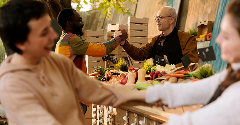
New environmental food scoring standards emerge
30 Sep 2024
EIT Food and Foundation Earth collaborate to launch environmental food scoring for products entering the global supply chain.
Read more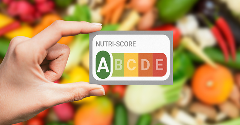
Danone removes NutriScore from products
20 Sep 2024
Following an algorithm update that gives some of its sweetened drinks a worse score, Danone has removed the front-of-pack label, NutriScore, from all of its products – putting profit before public health, say campaigners.
Read more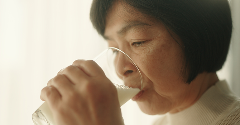
Nestlé develops a new fat reduction method for dairy ingredients
26 Aug 2024
A Brazil-based Nestlé research and development team has developed a way to reduce the fat in milk powder by as much as 60%, without impacting the key characteristics that consumers enjoy.
Read more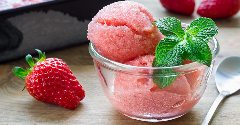
Better Juice expands its range to sorbets
16 Aug 2024
Food tech startup Better Juice has developed a technology to reduce the sugar content in fruit sorbets. The process retains the natural vitamins, minerals, and flavours of fruit, while offering manufacturers an easy-to-implement and scalable solution t...
Read more
German study reveals high sugar, fat, and salt levels in children's foods
13 Aug 2024
The food industry is making slow progress in reducing the high levels of sugar, fat, and salt in German food and beverage products marketed to children, according to the Max Rubner Institute (MRI).
Read more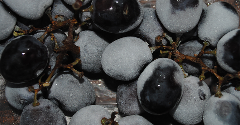
Swedish court overturns prohibition on winery’s use of imported frozen grapes
12 Aug 2024
Swedish company Drood Winery has successfully challenged the Swedish Food Agency’s decision to prohibit the production and sale of their product made from frozen grapes imported from Iran.
Read more
Paris Olympics: Food and beverage brands champion health, fun, and sustainability
5 Aug 2024
Food and beverage brands are aligning with the Paris Olympics 2024 Food Vision, which emphasises sustainability, local sourcing, and plant-based diets.
Read more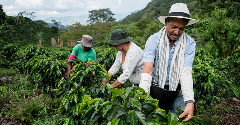
The coffee supply chain is failing farmers, says Solidaridad
30 Jul 2024
The coffee industry’s economic model means its profits do not reach farmers, despite there being enough value to be shared all along the supply chain, according to a new report by Solidaridad Network and IDH.
Read more